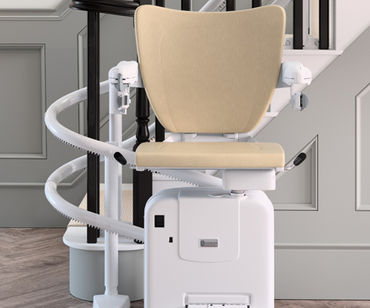National Trust sites to be made dementia-friendly

Every year, the National Trust sites attract people to come and enjoy spectacular nature views, enchanting gardens and some of Britain’s most historic sites. Many of these people are of the older generation, including those who may rely on curved stairlifts for the home and those living with dementia. After recent figures reveal that 7% (about 150,000) supporters of the National Trust over the age of 65 are living with dementia, the trust decided to partner with the Alzheimer’s Society for a three-year project to improve the accessibility of their 500 historic and countryside sites.
Dementia is a growing concern in older people as research, conducted by the Alzheimer’s Society, shows that one in every 14 people in the UK aged 65 and over has dementia, with someone developing the condition every three minutes, and these figures are growing. The research also found that for those living with Dementia, visiting heritage sites is amongst their most enjoyable activities as the surroundings feel “safe and familiar”.
The Alzheimer’s Society’s Chief Executive Jeremy Hughes tells the National Trust: “Visiting a heritage site can improve physical and mental health by helping people keep active. The importance of such venues increases as we get older, as a place to relax, recover and engage through multi-sensory stimulation of the space around us.”
The partnership focuses on three key areas; upskilling people who work and volunteer for the National Trust, improving accessibility at the sites and improving internal policies and processes to support members of staff and volunteers with Dementia. According to the website, improving signage, facilities and modifying the materials used on paths are just some of the changes that will be made. The programme goes beyond the National Trust sites as there are also plans to take heritage to local care homes, hospitals and social events, whilst also hosting awareness-raising activities in the hopes of building more dementia-friendly communities.
The National Trust’s volunteering and inclusion director Tiger de Souza commented to Plymouth Live: “Dementia is the greatest health concern of our time, so it is important that people living with the condition can continue to enjoy a positive and fulfilling life. We also know that our natural and historic places can play a significant role in improving the wellbeing of people living with dementia by helping to stimulate discussion and memories.
“A number of our sites are already offering great experiences for people living with dementia, and through this landmark partnership, we aim to extend those benefits to many more people. However, we recognise there are challenges around both accessibility and the support available at these sites and this is why we are joining forces with Alzheimer’s Society.”
This is a step in the right direction for making attractions and historic sites around the UK inclusive for everyone.
This news article is from Companion Stairlifts. Articles that appear on this website are for information purposes only.



